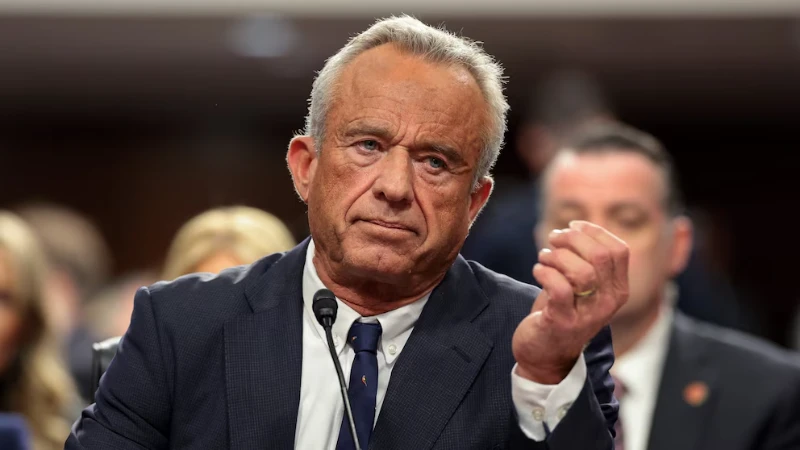FEMA's $59 Million Controversy
Elon Musk's claims about migrant housing funding spark outrage and raise critical questions about government accountability and resource allocation.
The recent controversy surrounding FEMA's funding for migrant housing in New York City has ignited a firestorm of debate, particularly following comments from Elon Musk. As the head of the Department of Government Efficiency, Musk claimed that $59 million was sent to luxury hotels for migrants, sparking widespread concern and confusion. His statements have raised questions about power, control, and potential risks associated with reallocating disaster relief funds.
FEMA's role in disaster relief has been significantly impacted by political changes under the Trump administration. The agency is responsible for managing federal assistance during disasters but has faced criticism over its handling of resources. Under Trump's leadership, there have been calls to downsize or even dismantle FEMA entirely, as highlighted by tweets such as which reflect skepticism about federal involvement in disaster management.
The Shelter and Services Program was designed to provide financial support for localities dealing with surges in migration. However, it has become a contentious issue among political factions who argue over its implications on resource allocation. Critics claim that funds meant for natural disasters are being diverted to support migrant housing initiatives.
Musk's assertions regarding the $59 million payment were met with immediate backlash from city officials who disputed his characterization of the situation. Liz Garcia, a spokeswoman for New York City, stated that "the money received was appropriated by Congress and allocated last year." She emphasized that these payments were not luxury expenditures but necessary reimbursements for services provided to migrants.
Following Musk’s comments, there were swift repercussions within FEMA including suspensions of payments and firings of staff members involved in processing these transactions. Acting Administrator Cameron Hamilton confirmed these actions while reiterating concerns about compliance with executive orders.
Public reaction to Musk’s intervention has been mixed but largely critical due to fears about government accountability and transparency in funding decisions. Many citizens worry that such interventions could undermine essential services during actual emergencies.
"This is absolute madness." - @smalls2672
Experts warn against reallocating funds intended for disaster relief towards other initiatives without thorough oversight. They caution that this could lead to unanticipated outcomes where communities affected by natural disasters might find themselves without adequate support when needed most.
"It's not just what they've already done to FEMA; it's also what they plan to do..." - @ManspergerSteve
This situation reflects broader issues related to immigration policy and federal resource allocation amidst rising humanitarian needs across the country. It underscores tensions between state responsibilities versus federal oversight - a recurring theme throughout American history.
"If former President Biden was driving around... how do you think the media would cover it?" - @meiselasb
Interfaith leaders and community organizations have been vocal in their support for the migrants, emphasizing the moral imperative to provide shelter and assistance. Reverend Susan Mitchell of New York's Interfaith Coalition stated, "We cannot turn our backs on those in need. The actions taken by FEMA under pressure from Musk are not just a bureaucratic misstep; they are a humanitarian failure." This sentiment is echoed by many who see the federal government's move as an abandonment of its responsibilities.
Republican leaders, however, have seized upon this controversy to criticize what they perceive as mismanagement within FEMA. Senator Tom Cotton remarked, "This is yet another example of how FEMA has lost its way. We need to prioritize American citizens affected by natural disasters over illegal immigrants being housed in luxury accommodations." Such statements underscore the political divide surrounding immigration policy and resource allocation.
Legal challenges have also emerged as a significant aspect of this unfolding drama. The Department of Homeland Security (DHS) faces lawsuits regarding its efforts to recoup funds from New York City following court rulings that favored the city's position on migrant housing reimbursements. Legal analyst Sarah Thompson commented, "These cases highlight the tension between federal authority and local governance, particularly when it comes to handling complex issues like migration during crises."
Historically, federal responses to migration surges during disasters or crises have varied widely. In previous administrations, there was often more collaboration between state and federal agencies to address such challenges comprehensively. However, critics argue that current actions reflect a shift towards isolationism and reduced federal intervention.
The implications of these events extend beyond immediate funding disputes; they may shape future disaster management strategies at both state and national levels. As election cycles loom closer, politicians will likely use these controversies to influence public opinion on government efficiency and accountability.
Public trust in agencies like FEMA is at stake amidst ongoing debates about their operational integrity and effectiveness in crisis response scenarios. With climate change exacerbating natural disasters' frequency and severity, ensuring robust emergency management systems becomes even more critical.
